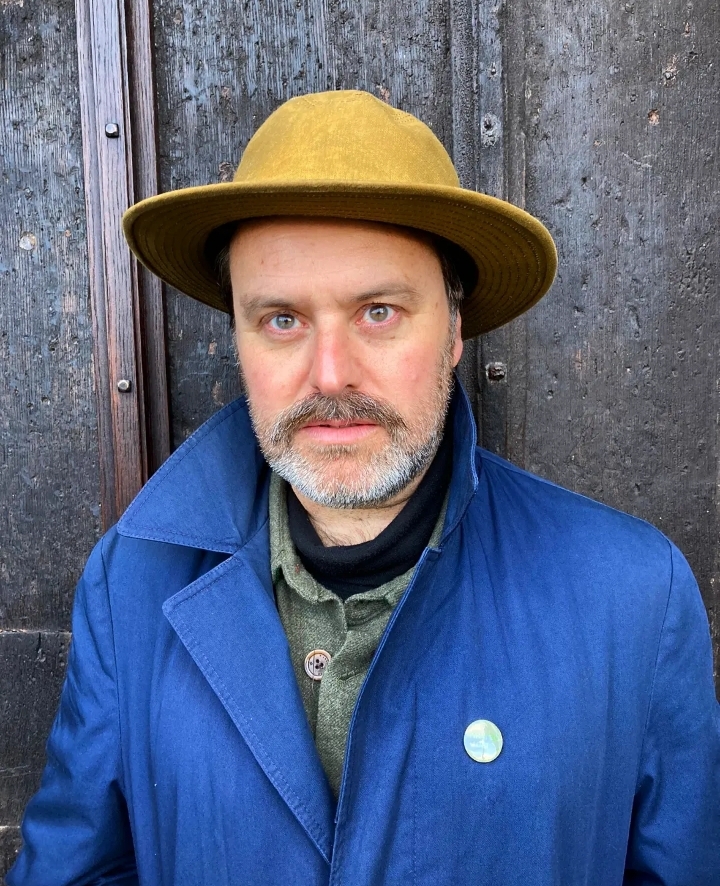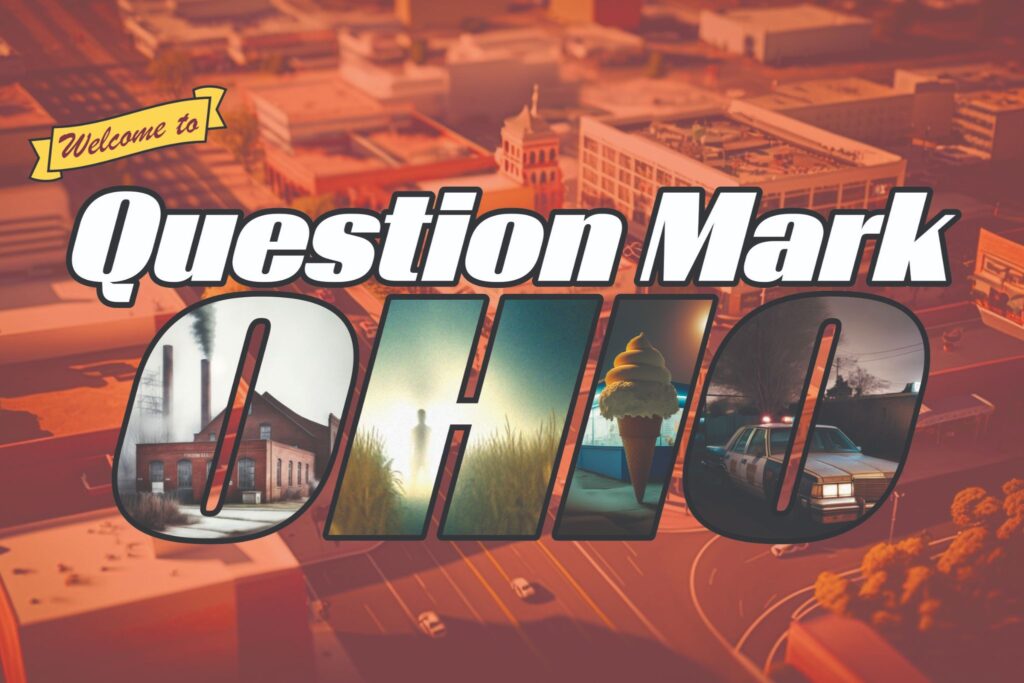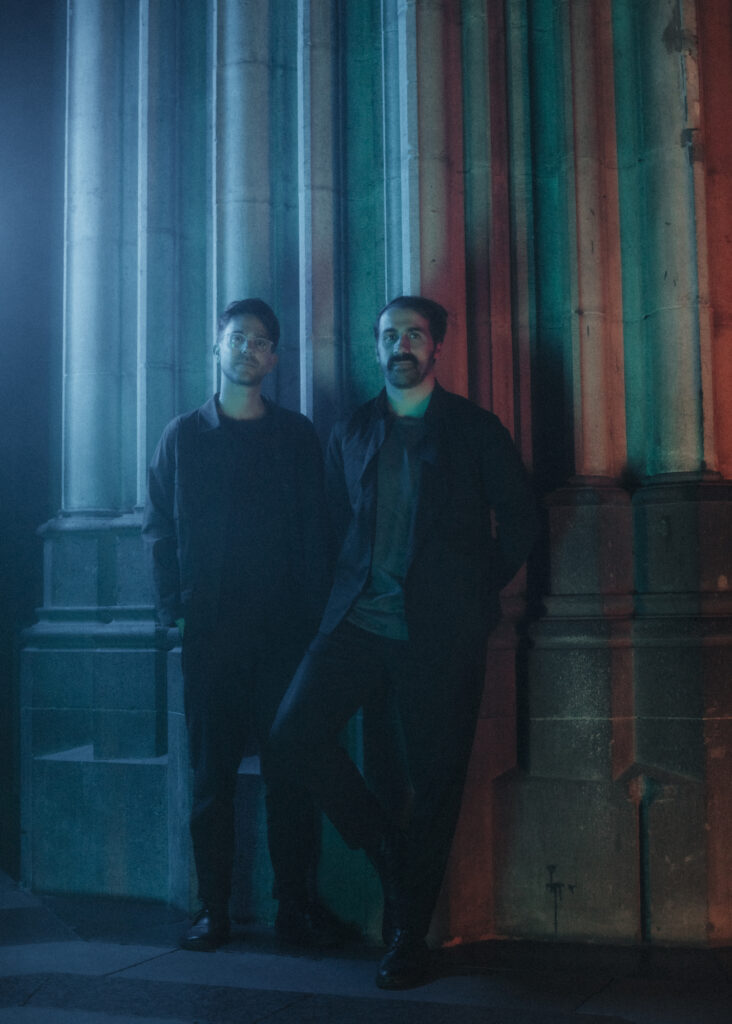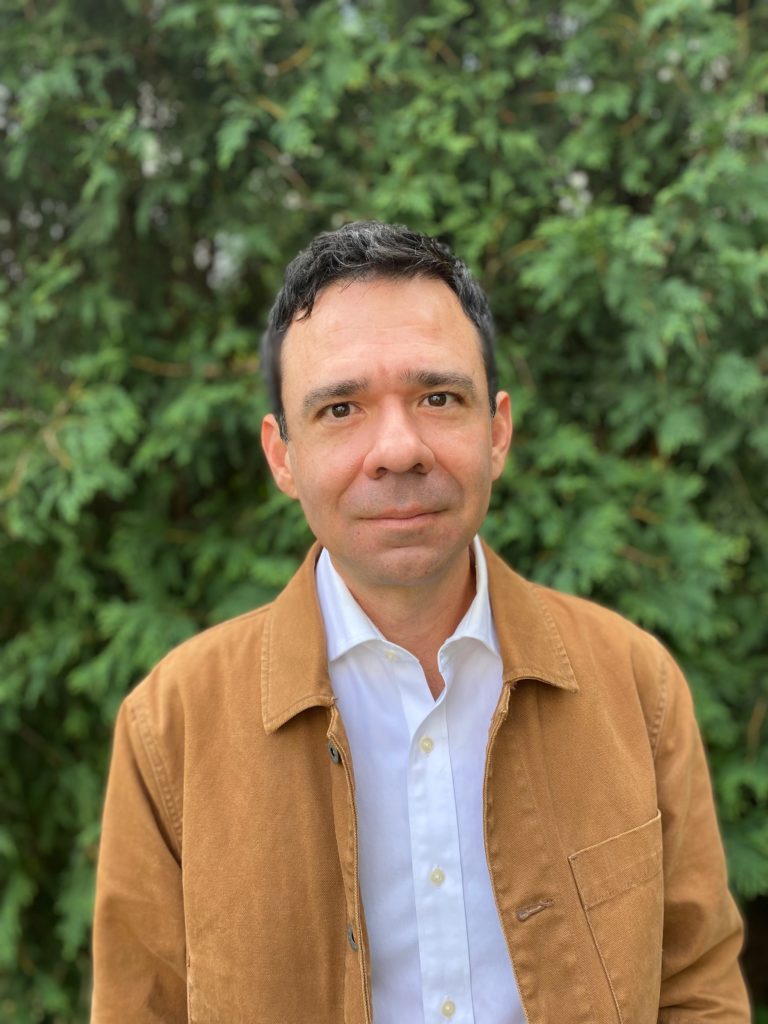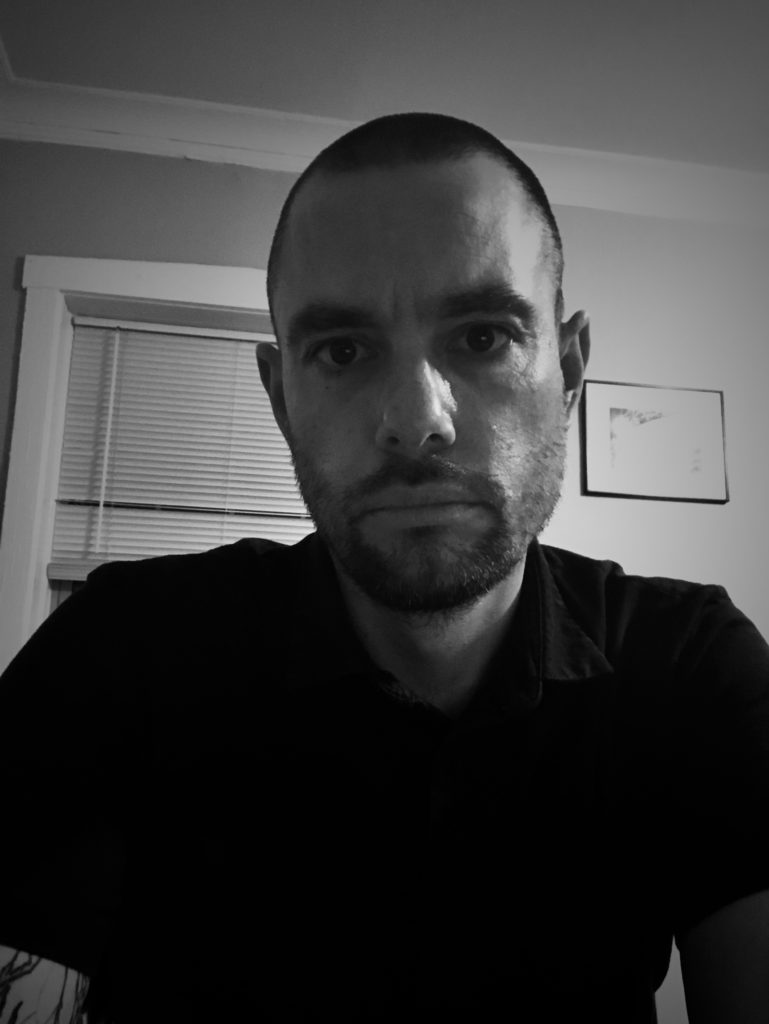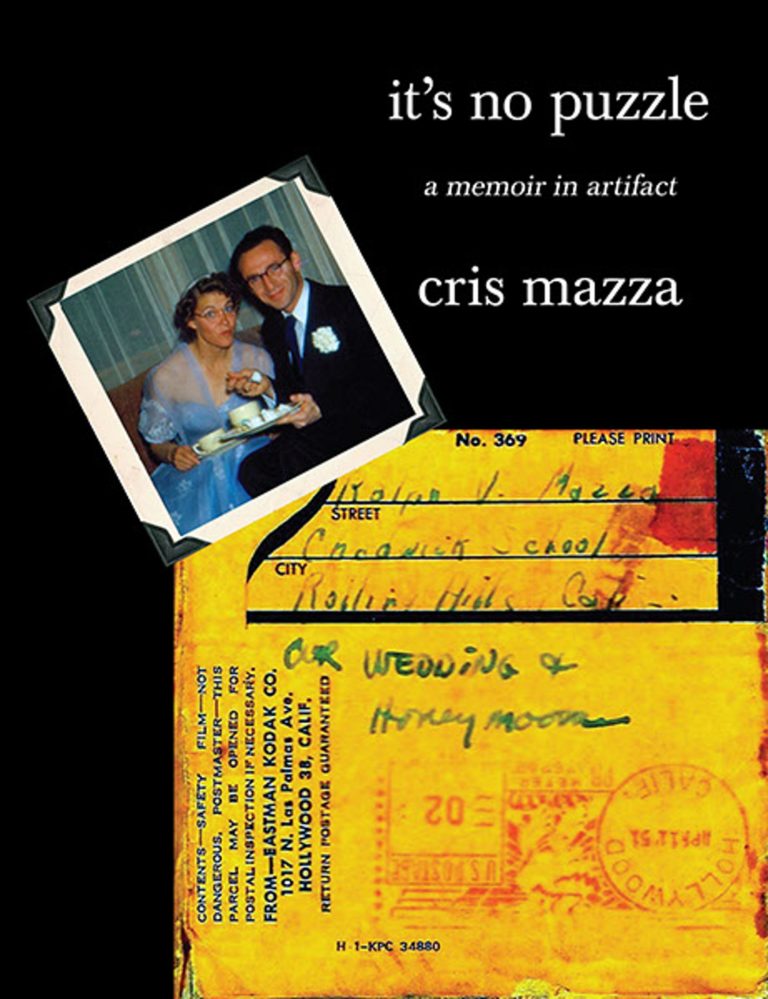
The writer Cris Mazza and her siblings were blessed with remarkable parents. Her father, a World War II veteran who became a community college physics professor, was a forward-thinking man for his era, ensuring his girls had access to the same educational opportunities as boys. Her mother was not only college-educated, also unusual for her generation, but later returned for a second round of schooling so she could obtain a teaching credential and start a second career in elementary education. Together, the Mazzas made their children the center of their lives; they were rewarded by seeing their clan grow into vibrant, self-sufficient adults. Mazza chronicled these good times in Indigenous: Growing Up Californian, a critically acclaimed introduction into the “normality beneath the California myth that seems all the more dazzling and exotic with the passage of time,” as the Los Angeles Times said. While that book was fueled by memory, her new memoir, It’s No Puzzle: a memoir in artifact (Spuyten Duyvil Books), is powered by the questions that emerged as Mazza considered the objects that would amount to her parents’ legacy.


